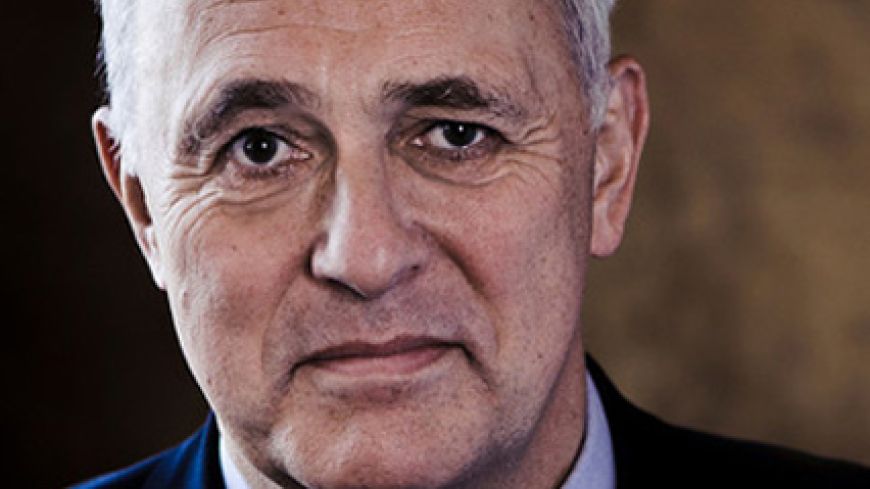
Sheena McDonald introduced Malloch-Brown as someone with huge experience of international affairs having worked with UNHCR Thailand, been a Government Minister, held a post in the World Bank, and also as Deputy to Kofi Annan who was Secretary General of the UN. Sheena McDonald felt that the sub-title of the book should be "The Limits of Nations".
Malloch-Brown said that as the nations of the world were becoming more and more integrated, but we were becoming less able to cope with the many crises that now seem regularly to beset the world. He said that much of the book was intended to try and make the case for the United Nations to be more empowered by governments in order to solve problems which are becoming more and more complex by the year. However, he admitted that nations were not yet ready to allow national problems to be addressed by a more centralised approach.
He talked of a "rebalancing of global power" as it was important not to think that the west had all the solutions about how life should be lived. But opportunities exist, he felt, and can be seen in the efforts of some of the larger NGOs, supported by nations, to pursue policies for good - the landmine campaign which has support from Canada, and now Norway, was given as an example. He quipped that some of the nations involved in this form of support "might become NGOs in afterlife".
He said that the book was very much a personal account and starts with him travelling to Gleneagles with Kofi Annan for the G8 summit and he caused some amusement by telling the audience about the "enormously annoying Bob Geldorf and Bono" who collared Kofi Annan to demand cancellation of international debt for the poorer countries. He added that after several minutes of heated debate they moved off, only to then catch an unsuspecting President Jacques Chirac further down the corridor, who obviously had no idea whatsoever who they were or what they were demanding.
Malloch-Brown went back to his days as a journalist working on "The Economist" and talked about the briefings he used to get from Margaret Thatcher for whom he confessed great admiration because of her total commitment to her convictions. The other person he said that he admired was Michael Foot who was always delightful, witty, and charming with plenty to contribute to any topic.
He described the next twenty five years as working as a sort of "democratic mercenary" and involved with people such as Boris Yeltsin and campaigning against Pinochet in Chile.
He spoke of the challenges that have faced the world, such as the huge readjustment needed after the end of the Cold War and the subject of human rights, which still needs enormous work with the many problems that exist, for example in China and Myanmar.
He spoke of the post-conflict refugee problems that there have been in Indo-China, in the former Yugoslavia and now in Africa with the fall-out from the Libyan uprising and the "Arab Spring"; the need to pursue the Millennium Development Goals, particularly halving world poverty, making it an attainable aim. He felt that there had been some success with India, Brazil and China being supportive. But Malloch-Brown said there were still enormous challenges in the field of providing affordable modern medicines and in education. He envisaged a "coalition of the willing" which evolved from informal groupings of nations holding similar views who would come together.
Asked what he felt would happen in Afghanistan he suggested that the way forward was through contact with the Taliban, however, somehow he wanted to ensure that schooling for girls in Afghanistan did not stop once peace was secured; he spoke of President Karzai having to keep making more and more gestures and concessions to the Taliban in order to secure their support and the dangers this held.
In all of this, the level of corruption was a real threat and adversely affected the flow of aid to needy countries. This is a tragic consequence when one sees how little people have in the deprived areas. He ended on a positive note, looking forward to increased global solidarity.
Events: Sunday 28 August 2011, 12:00

